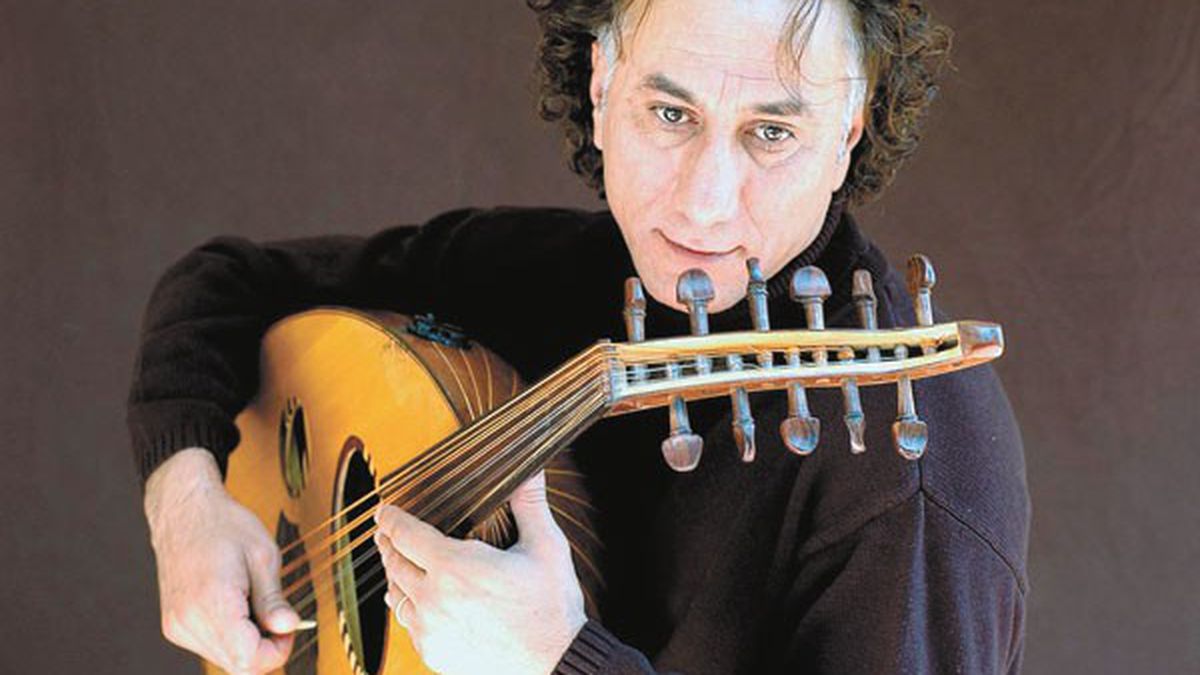A couple of years ago, the record label Smithsonian Folkways revived itself with a handful of releases of music from Afghanistan, Uzbekistan, and Iraq. One of those discs by Iraqi oud virtuoso and composer Rahim AlHaj, When the Soul Is Settled: Music of Iraq, was a deeply meditative and moving exploration of Iraqi maqam (a musical mode) and improvisation. It turns out that AlHaj is an expatriate, a former political prisoner of Saddam Hussein who escaped Iraq, relocated to the US in 2000 after some time in Europe, and made a new home in New Mexico.
So while countries around the world are in turmoil, their music lives on in refugee status. Zimbabwe’s Thomas Mapfumo lives in Oregon, and many Congolese musicians, including the superstars Syran Mbenza and Papa Noel of Kekele, live abroad in Europe or the US. It only makes sense. But it does rattle one’s sense of cultural authenticity and what that means in the modern day. How does Iraqi music change when the musician doesn’t live in Iraq anymore?
“I think my music has developed more, it becomes universal,” AlHaj said. “It doesn’t talk to just Arab people who know the maqams, it becomes involved more globally than just locally.”
AlHaj laughs at any preconceived notions or compartmentalization of music: “The music is music. The scale is the scale. We made it up! This is jazz, this is world!” To AlHaj, there are two kinds of music in the world: “good music or bad music.” Since 2006’s When the Soul Is Settled, he has also released a CD of his own compositions for solo oud, Home Again, based on the experience of visiting Iraq after the second US-Iraq war, after thirteen years in exile. He found out about his father’s death, and visited the site of the Baghdad Institute of Music, which had been bombed into oblivion. The CD closes with a meditation about returning to his new home in Albuquerque.
Taken strictly on musical terms, AlHaj is undeniably a master of his instrument. He studied under the legendary Munir Bashir, possibly the greatest oud player of the 20th century. He has a deep woody tone, very clear and expressive, and, like Bashir, he has a profound sense of musical space and silence. All the technique means nothing to him, however, unless it’s in the service of communicating and musical meaning. “After almost every concert,” he declared, “people come up to me with tears in their eyes. Something touched them.”
Like many musicians of other cultures working in the US, AlHaj has found himself in the role of educator. “The oud is unfamiliar here in the United States. Average people, they have no idea! Even musicians, they do not know the oud. Then there’s misconception that the instrument is a folk instrument, not a classical instrument,” he laughed. “I tell them, it’s like the violin, you can play concertos from Mozart and Beethoven, or play it like a fiddle. I have to prove that, so I wrote the music for oud and string quartet, because the string quartet is the fundamental setting for classical music.” Other collaborations in the oudist’s future include CDs with nuevo flamenco guitarist Ottmar Liebert, Native American flautist Robert Mirabal, and jazz mad scientist Bill Frisell, who contributed a quote to the back cover of Home Again.
It becomes clear that with AlHaj, the message and the music are inseparable. One newspaper described him as a “Prophet with an Oud” because of his message of peace and humanism. “Our world has become insane!” he said, obviously pained. “To see the oud interact with the violin and the horn and the flute in beautiful harmony, to see all the instruments, the African instruments, the Arab instruments, the American and European instruments, we’re all playing in harmony. Why don’t we take this example to the world? Peace and love and compassion!” He paused for a moment, collected his thoughts.
“Because I’m here, the conflict will be very huge inside of me,” he said, intensely. “I’m paying taxes! I’m funding the war. How can I justify that? It’s very difficult to have peace of mind. But I found that being in the United States is more important than being in my home.”
AlHaj sees this as his chance to communicate positive things. He describes the general state of ignorance about Middle Eastern culture in the US, fueled by the media. “How many times on CNN have you seen an Arabic intellectual, or a poet?” he asked. “None! How many times have you seen turban, beard, and gun? Every day! Is this their fault or our fault? I think it is our fault,” he sighed. “I am now here to tell the truth, about women and kids…. In my country, they have no voice.”













